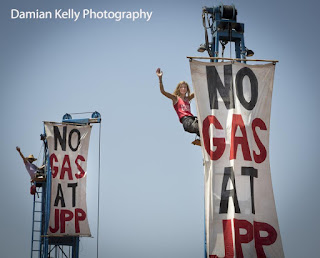The buildings of Timbuktu were made of the very earth on which
they stood – low, flat-roofed mud dwellings with open doorways giving a glimpse
of the dark and cool within. The streets
were sand, and there was a sandy grey haze in the air.
The mosques stood tall and proud. They were spiked with
wooden struts, used as steps for the re-coating of mud after the annual rains.
Here and there were large domed tents with goats ambling
around. The nomadic Tuaregs used these as their homes while in the city, in
between trips into the desert. The Tuaregs, in their distinctive blue robes,
are nomadic desert people whose territory crosses the borders of Mali, Niger
and Algeria. They walked the streets, or sat in their tents drinking sweet
green tea. Some rode camels.
The African City of Gold is more humble than it was during the fifteenth century when it was a centre for Islamic scholarship -of the 100,000 population, a quarter were scholars. A mystical city, it lured European explorers many of whom died in their attempts to reach it. The Scottish Gordon Laing was the first to make it, but was murdered two days after leaving the city in 1826. The Frenchman Rene-Auguste Caillie disguised himself as an Arab to reach the city in 1828, and returned to Europe to claim the prize offered by the Geographical Society of Paris.
At the time of my visit there were plenty of westerners around, more than usual because the
Festival au Desert was on in a few days and lovers of African blues were
arriving for the show.
I suspect the entire city was transformed by the coming of
the festival. I arrived in Timbuktu four days before it began, in time to
observe the build up of mayhem.
A cheap hotel gave me a mattress to put on the floor of
their covered courtyard. I left my stuff and walked out to see what there was
to see. Imposing mud mosques, carved wooden doors, an atmosphere of restrained
excitement.
I was befriended by an enthusiastic local called Issa who
was eager to tell me all about the city. He took me to his sand-floored house
to drink tea. It was cool and dark inside and his little radio had African blues
crackling out. Children wandered past the open doorway. Issa’s mum walked in
and out giving me a dubious eye each time she passed - apparently she hadn’t
got festival fever like Issa. Three teenage girls with large tubs of rice on
their heads came in. One took off her tub to scoop some rice out for Issa’s
mum, and the other two began dancing to the song on the radio. With tubs
balanced neatly on their head they moved to the lilting music, spontaneous and
unrestrained.
I spent hours on the flat roof of the hotel, looking down at
the sandy streets. From three floors up I observed the tourists being pursued
by salesmen; they were followed from their cars to their hotel, from the hotel
to the bar. These days before the festival provided opportunity for the
persistent businessman to make a years’ wages in a short time.
I saw Doug, another Australian I had met earlier in my
travels. He told me how he’d been in the back of a truck driving into town when
it occurred to him that this was no way to enter Timbuktu. He called out for
the driver to stop, and jumping off with his bag he found a donkey laden with
firewood, whose owner was willing to put Doug on top. So he entered the city on
the back of a donkey.
With Issa and his friends we ate dinner at a makeshift
restaurant on the street. There was an oil lamp on the table, and dishes of
brochette, chips, salad and bread. Sharing a meal in the warm evening air, the lamp
light flickering off our faces, shadows dancing on the wall behind us, people
from opposite sides of the world laughing together... there was a lot to be
thankful for. Afterwards we wandered the streets in the dark evening, looking
for perhaps some music. We found instead a group of men watching a dubbed kung
fu movie on a small tv on the street and we stood to watch with them.
Then a blackout. Lights out all over the town. Doug didn’t know how to find the place he
was staying. It wasn’t a hotel, just a guy’s house and he had no name for it,
only a picture on his digital camera. He showed some of the men who had been
watching the kung fu, asking them if they knew where it was. They laughed,
wondering how these foreigners survive in this world, but one of them
recognised it and offered to take him there on his motorbike. Timbuktu days were full of the unexpected.
2007






































